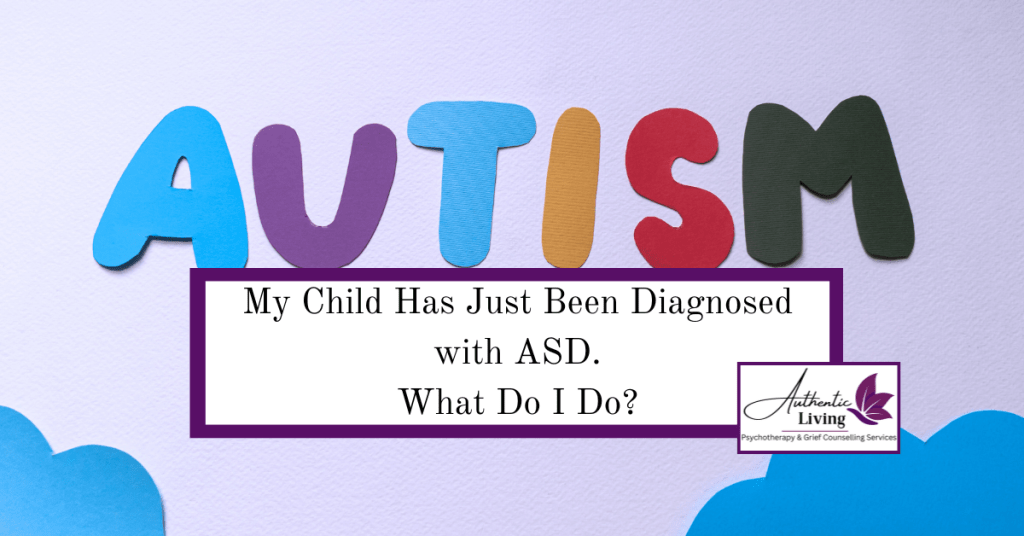Understanding an Autism Spectrum Disorder (ASD) Diagnosis: Guidance and Support for Parents
Receiving an autism spectrum disorder (ASD) diagnosis for your child can bring a mix of emotions—relief in finally having answers, concern about what the future holds, and uncertainty about how to best support your child. If you’re feeling overwhelmed, you’re not alone. Many parents go through a similar experience, and with the right information and support, you can help your child thrive.
Common Concerns After an ASD Diagnosis
What Does This Mean for My Child’s Future?
ASD is a spectrum, meaning each person experiences it differently. Some individuals require significant support, while others live independently with few accommodations. With early intervention, therapy, and the right resources, many autistic individuals build fulfilling lives. It’s important to focus on your child’s strengths rather than just their challenges. Some autistic individuals excel in structured environments, have strong problem-solving skills, or possess deep knowledge in specialized subjects. Helping your child develop their unique abilities can lead to meaningful careers and independent living. Additionally, learning about available support services—such as special education programs, behavioral therapy, and occupational therapy—can give you a clearer picture of the resources that can help your child thrive.
How Can I Support My Child?
Support will look different for every child, but a great place to start is learning about ASD and understanding your child's unique strengths and challenges. Connecting with autism specialists, educators, and support groups can provide valuable guidance. One of the most important things you can do is advocate for your child’s needs. This may involve working with schools to develop an Individualized Education Plan (IEP), setting up speech or occupational therapy, or creating a sensory-friendly home environment. Understanding your child’s triggers and helping them navigate daily life with accommodations can make a significant difference in their well-being. Patience and flexibility are key. Autistic children often benefit from clear expectations, visual schedules, and positive reinforcement. Listening to your child and adapting to their needs can create a more supportive and less stressful environment for both of you.
Will My Child Make Friends and Build Relationships?
Socializing can be challenging for some autistic children, but that doesn’t mean they won’t form meaningful relationships. Therapy and social skills training can help them navigate interactions, and connecting with supportive peers can foster friendships. Many autistic children benefit from structured social interactions, such as small group activities, clubs, or programs designed for neurodivergent individuals. Role-playing social situations, using visual cues, and practicing conversation skills can help your child feel more confident in social settings. Encourage friendships based on shared interests rather than conventional social norms. Autistic children may connect more easily with peers who have similar passions, whether it’s gaming, science, or art. Supporting these friendships and helping your child navigate social nuances in a way that feels natural to them can lead to fulfilling relationships.
How Will This Affect Our Family?
An ASD diagnosis can impact the entire family. Siblings may have questions, and parents may feel stressed trying to meet their child’s needs. Open communication, family therapy, and support groups can help create a balanced and understanding home environment. Siblings of autistic children may need guidance in understanding their sibling’s behaviors and needs. Encouraging open discussions and providing reassurance that all family members' feelings are valid can help create a more cohesive household. Setting aside one-on-one time with each child ensures that everyone feels seen and supported. As a parent, it’s easy to feel overwhelmed, but self-care is crucial. Seeking therapy, joining parent support groups, or simply taking breaks when needed can help prevent burnout. Remember, taking care of yourself enables you to be the best support for your child.
How Therapy Can Help
Therapy plays a crucial role in supporting both autistic individuals and their families. At Authentic Living London, Lizanne Hills specializes in therapy for both individuals with autism and their family members.
For Individuals with ASD
Developing Coping Strategies: Therapy can help autistic individuals navigate sensory sensitivities, emotional regulation, and communication challenges.
Improving Social Skills: Structured support can assist in understanding social cues and building relationships.
Building Independence: Therapy can provide tools to improve daily living skills and boost confidence in handling everyday tasks.
For Parents and Family Members
Understanding ASD: Therapy can help parents learn how to best support their child while also managing their own emotions and expectations.
Strengthening Family Relationships: Families can work together to create a supportive and understanding home environment.
Self-Care for Caregivers: Parents and siblings often experience stress and emotional exhaustion. Therapy provides a safe space to process feelings and build resilience.
Practical Tips for Family Members
Create a Predictable Routine – Many autistic individuals thrive on structure. Try to keep daily routines consistent to reduce anxiety and provide stability.
Use Clear and Simple Communication – Avoid abstract language or sarcasm. Be direct and clear in your instructions and expectations.
Learn About Sensory Needs – Some children with ASD may be sensitive to noise, textures, or bright lights. Identifying sensory triggers can help you create a more comfortable environment.
Encourage Special Interests – Autistic individuals often have strong interests in specific topics. Engaging with their passions can be a great way to connect and build confidence.
Take Breaks and Seek Support – Supporting an autistic child can be demanding. It’s important to practice self-care, connect with other parents, and seek therapy or counseling when needed.
Next Steps: Finding Support
If you’re navigating a new ASD diagnosis in your family, remember that you don’t have to do it alone. Seeking professional guidance, connecting with support groups, and educating yourself about autism can make a significant difference in your journey.
At Authentic Living London, Lizanne Hills is here to support both individuals with ASD and their families. Whether you’re looking for strategies to help your child thrive or need emotional support as a parent, therapy can provide the tools you need to move forward with confidence.
Reach out today to learn more about how therapy can help your family navigate life after an ASD diagnosis.

Lizanne Hills
Registered Psychotherapist -Qualifying Addictions Certificate
Areas of Focus: Grief, Addictions, Family Therapy, Couples Therapy, Trauma/PTSD, Children’s Grief, Life Transitions





